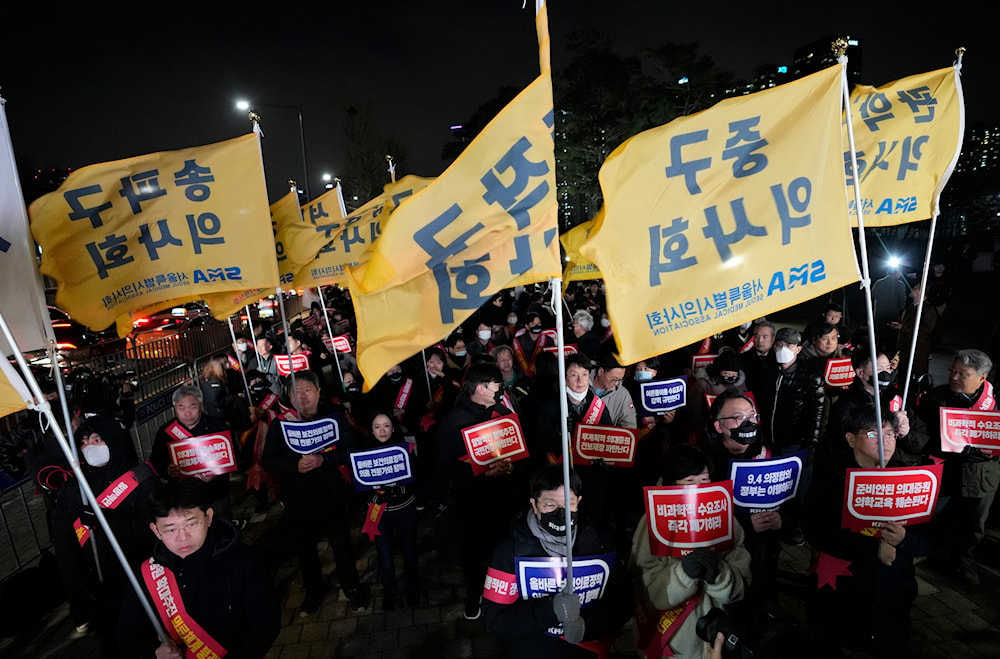South Korea warns doctors to halt protest at risk of prosecution
South Korea warns doctors to return to work and end their protests against government reforms at the risk of losing their licenses and future careers.
-

Doctors stage a rally against the government's medical policy near the presidential office in Seoul, South Korea, Thursday, February 15, 2024. (AP)
As protests over medical reforms have begun their second week, South Korea warned trainee doctors today to come back to work, at the risk of prosecution if they do not return to hospitals in the next three days.
Official figures revealed that more than 10,000 junior doctors, making up 80.5 percent of the trainee workforce, have quit as part of an escalating action against government plans to sharply increase medical school admissions to counter deficiency in the field and a fastly aging society.
The shortage in staff has led to cancellations and postponements of surgeries for cancer patients and C-sections for pregnant women, with the government elevating its public health alert to the highest level over the fallout.
Their licenses and future careers are at risk
Doctors in South Korea are labeled as vital workers who are prohibited by law from striking, which prompted the government to claim many times that this mass resignation is unlawful.
As of today, 9,006 trainee doctors are not going to hospitals, and the government warned that legal action, including prosecution and the halting of medical licenses against the protesters, will soon be "inevitable".
Second Vice Health Minister Park Min-soo announced in a press briefing: "Please return to your workplaces by the end of this month, February 29," adding "If you return to the hospital you left by this date, you will not be held responsible for the past."
He further warned those who will continue to protest, stressing that their medical licenses will be revoked for at least three months, and the latter will be permanently on their record, in turn risking their careers including employment abroad.
"It is not too late, so please return to your patients immediately," he urged.
The trainees have spoken up against their tough work conditions
Hospitals across South Korea have been battling with a doctors shortage in the past week, with local media announcing today that more doctors, including fellows and even fresh medical school graduates, were partaking in the protests.
Seoul has one of the lowest doctor-to-population ratios among developed countries, and the government has plans to admit 2,000 more students to medical schools annually, starting next year.
This has pushed doctors into expressing fierce opposition to the government's plan as they believe that maintaining it would hurt the quality of service. On the other hand, those who support the government's plan claim that the doctors are only concerned about their salaries and social status being affected.
Junior doctors have expressed that the reforms are "the final straw" in a profession where they already grapple with tough working conditions stressing that excess dependence on trainees in the current healthcare system is unreasonable and unfair.

 3 Min Read
3 Min Read








